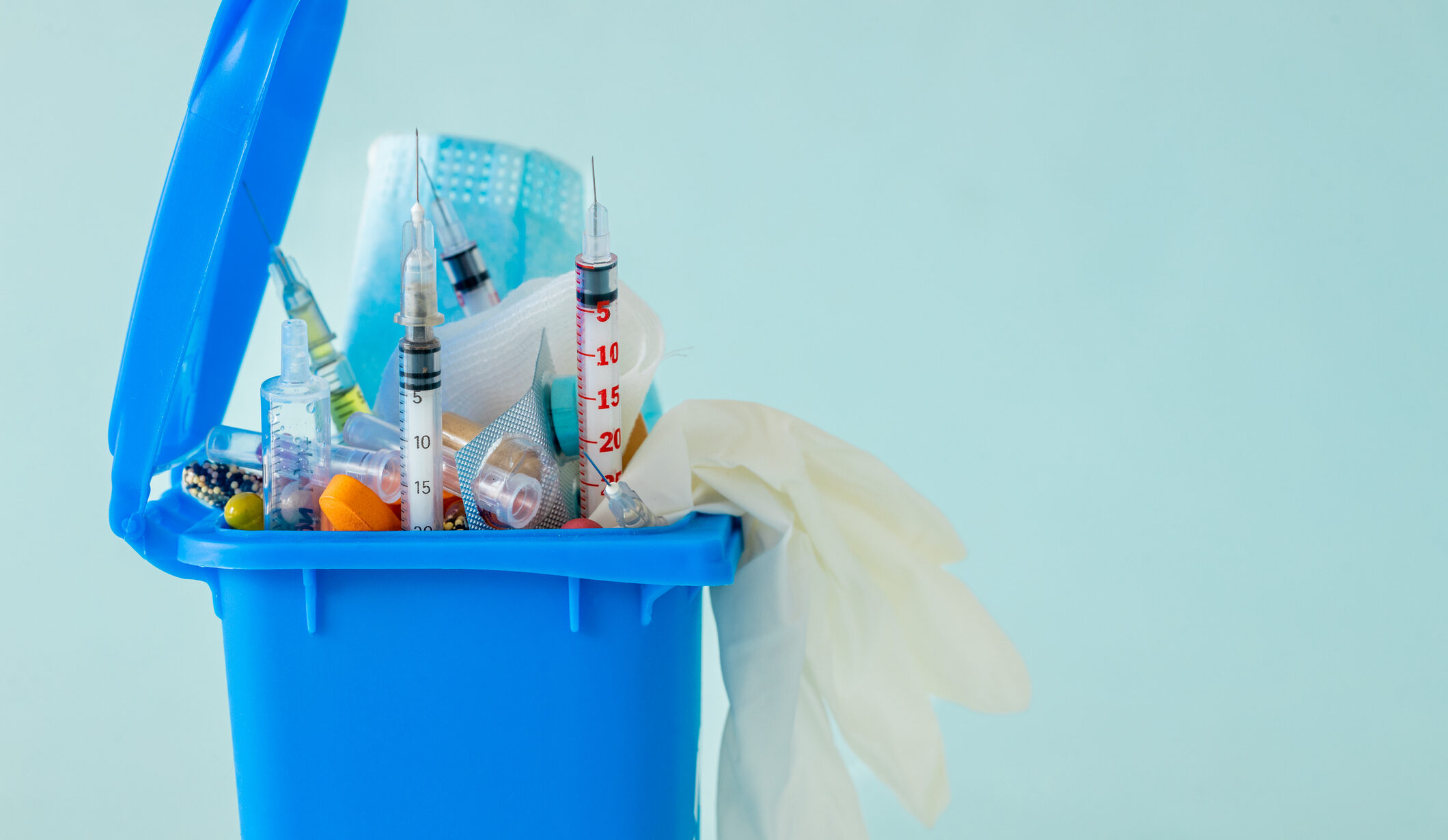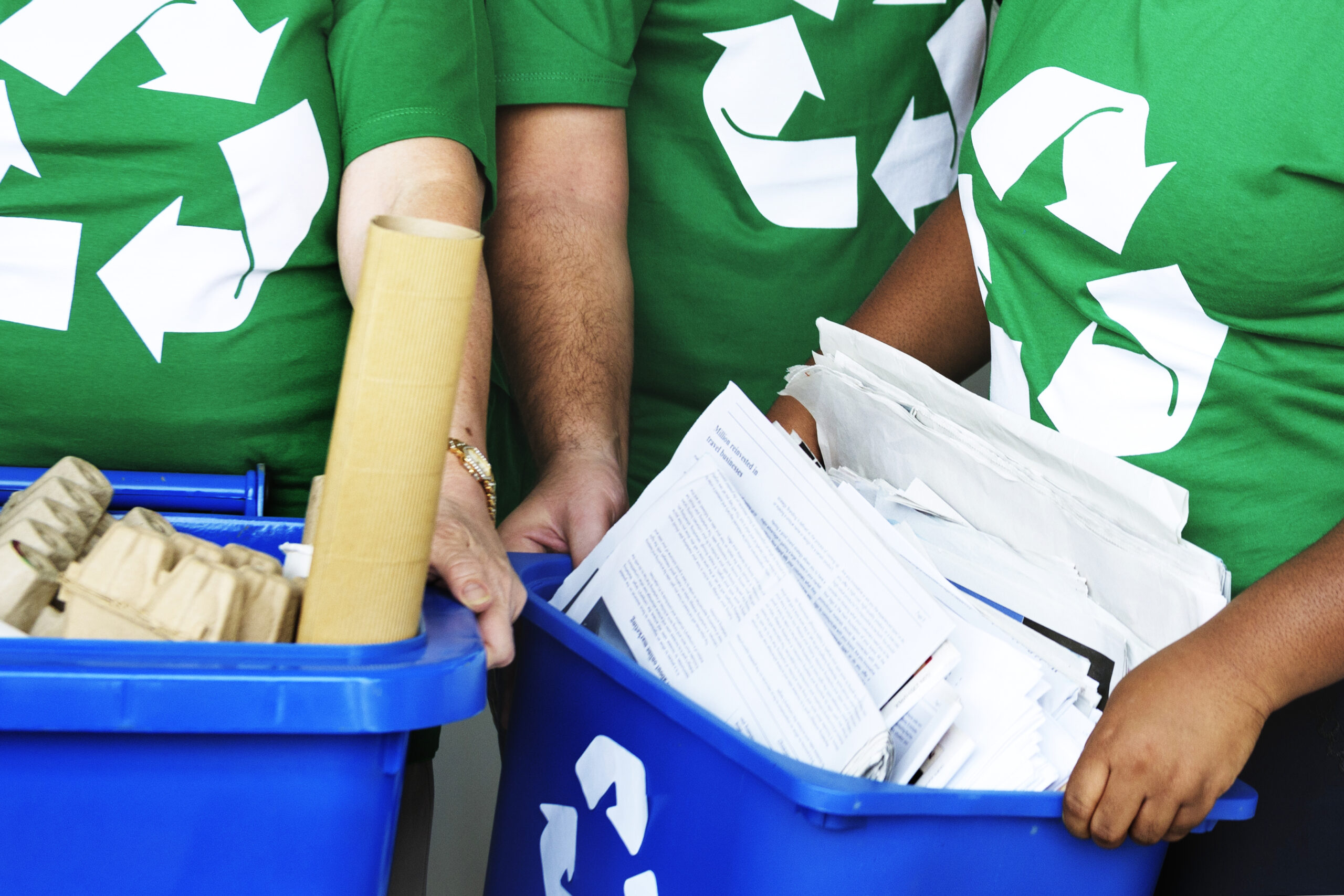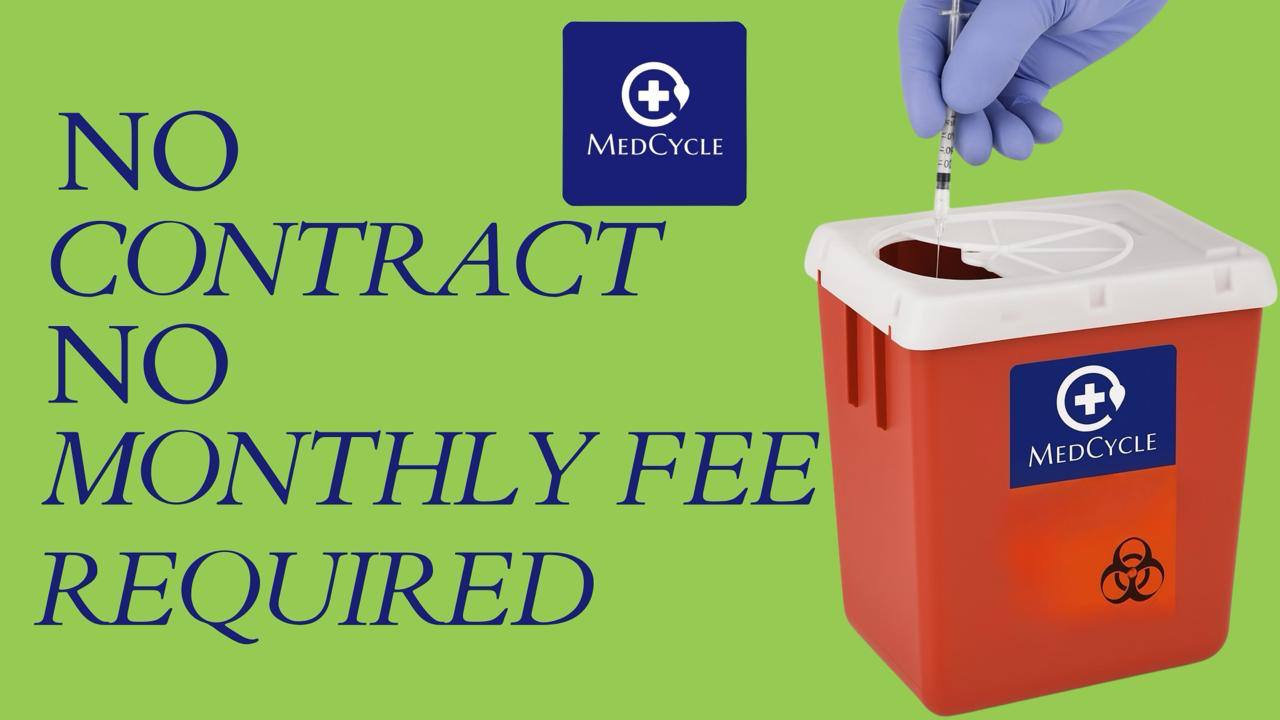How much does biohazard disposal cost? This is one of the most common questions clinics and healthcare facilities ask when planning their waste management budget. The answer depends on several factors — from the type of waste you generate to how often it’s picked up, where your facility is located, and which company you partner with.
Understanding the true cost of biohazard waste disposal is not just about saving money. It’s also about compliance, community safety, and avoiding fines for improper handling. In fact, effective waste management often pays for itself by reducing risks and protecting your facility’s reputation.
In this guide, we’ll break down the pricing factors, typical ranges, and cost-saving strategies that every clinic should know. We’ll also explain the difference between routine disposal and cleanup services, and why working with a no contract waste disposal service like MedCycle can save you both money and stress.
What Is Biohazard Waste and Why Proper Disposal Matters
Biohazard waste refers to materials that may contain infectious agents or hazardous substances that can harm people and the environment. For clinics and hospitals, managing this waste correctly is non-negotiable.
Common types of biohazard waste include:
-
Sharps waste: Needles, syringes, scalpels.
-
Pathological waste: Human tissues, organs, body fluids.
-
Microbiological waste: Lab cultures, specimens.
-
Pharmaceutical waste: Expired or contaminated medications.
Mishandling any of these wastes can spread diseases, trigger regulatory violations, or contaminate water and soil. That’s why the CDC and EPA require strict procedures for biohazard waste disposal.
👉 Safe disposal protects staff, patients, and the community. It also avoids costly fines and legal issues.
How Much Does Biohazard Disposal Cost? Typical Price Ranges
The cost of biohazard waste disposal varies, but most clinics fall into predictable ranges.
Average biohazard disposal pricing:
-
Sharps waste: $20 – $50 per container.
-
Pathological waste: $0.50 – $1.00 per pound.
-
General medical waste: $0.25 – $0.50 per pound.
-
Biohazard cleanup (special events): $200 – $600+ depending on severity.
These are baseline numbers — your actual costs will depend on several factors we’ll explore below. The most important takeaway is that costs rise with volume, risk level, and frequency of pickups.
Key Factors That Influence Biohazard Disposal Cost
Several drivers affect the biohazard waste disposal cost your clinic will pay:
1. Type of Waste
-
Sharps require puncture-proof containers.
-
Pathological waste often requires incineration.
-
Pharmaceutical waste may need specialized handling.
The more hazardous the waste, the higher the cost.
2. Volume of Waste
-
Larger volumes = higher costs.
-
Smaller clinics can save by optimizing segregation (keeping non-hazardous waste out of biohazard containers).
3. Pickup Frequency
-
Frequent pickups = safer storage but higher costs.
-
Less frequent pickups save money but require larger, secure storage.
4. Geographic Location
-
Urban areas may have more providers (lower cost competition).
-
Rural areas often face higher transportation fees.
5. Regulatory Compliance
-
Strict state laws (e.g., California, New York) may increase costs.
-
Fines for non-compliance can be even more expensive than disposal.
6. Disposal Method Used
-
Incineration costs more but is necessary for pathological waste.
-
Autoclaving is cheaper and common for infectious waste.
-
Chemical treatment varies depending on the waste type.
👉 Understanding these factors gives clinics control over costs and helps in negotiations with providers.
Comparing Biohazard Waste Disposal Companies
Not all disposal companies charge the same. When evaluating providers, look for:
-
Transparent pricing: No hidden fees for containers or pickups.
-
Service flexibility: Ability to adjust pickup schedules as your waste generation changes.
-
Regulatory compliance: Proven track record of meeting OSHA and state standards.
-
No long-term contracts: Services like MedCycle’s no contract waste disposal plans allow flexibility and cost savings.
Many clinics save money simply by switching providers who overcharge or lock them into unnecessary multi-year contracts.
Biohazard Cleanup Cost vs. Routine Disposal
It’s important to understand the difference between routine disposal and biohazard cleanup costs.
-
Routine disposal: Scheduled pickups for sharps, dressings, and other daily waste. Predictable, usually based on weight or per-container pricing.
-
Biohazard cleanup: Emergency response to spills, accidents, or contamination. Requires trained specialists, specialized gear, and can cost several hundred dollars or more.
👉 Routine disposal is part of your ongoing budget. Cleanup costs are occasional but unpredictable — planning for both keeps you financially prepared.
How to Reduce Your Clinic’s Biohazard Disposal Costs
Even though costs are unavoidable, there are proven ways to keep them under control.
-
Train staff on waste segregation. Don’t let non-hazardous trash end up in biohazard containers — it drives up disposal costs unnecessarily.
-
Use reusable containers. While the upfront cost is higher, they save money long-term.
-
Audit your waste stream. Regularly review what you’re throwing away to identify savings.
-
Negotiate provider contracts. Ask for tailored services, bundled deals, and volume-based discounts.
-
Choose a no contract provider. Services like MedCycle’s no contract waste disposal plans keep pricing flexible and fair.
By applying these strategies, many clinics cut their disposal expenses by 10–30% annually.
Compliance, Safety, and the True Value of Proper Disposal
While cost is a major factor, clinics should never cut corners on safety. Improper disposal can result in:
-
Fines: State and federal penalties for violations.
-
Lawsuits: Liability if waste harms the community.
-
Reputation damage: Patients trust clinics that operate responsibly.
Proper disposal isn’t just about money — it’s about protecting lives and proving your facility’s commitment to healthcare excellence.
FAQs
Q1. How much does biohazard disposal cost for a small clinic?
Small clinics typically pay $50–$300 monthly, depending on volume, waste type, and pickup frequency.
Q2. What factors increase biohazard disposal cost?
The biggest factors are waste type, volume, pickup schedule, location, and compliance requirements.
Q3. Is biohazard cleanup more expensive than regular disposal?
Yes. Cleanup for spills or emergencies requires specialists and equipment, often costing several hundred dollars per incident.
Q4. Can clinics reduce their disposal costs?
Yes — through staff training, better segregation, reusable containers, audits, and negotiating with no contract waste disposal services.
Q5. Why does location affect disposal cost?
Urban clinics may have cheaper services due to competition. Rural clinics often pay more for transportation.
Conclusion: Smarter Biohazard Disposal for Cost and Safety
So, how much does biohazard disposal cost? The answer depends on your waste type, volume, pickup frequency, location, and provider. On average, clinics can expect to pay per pound, per container, or monthly — but costs can be optimized with smart strategies.
By choosing the right provider, training staff, and avoiding long-term contracts, clinics can keep costs predictable while staying compliant. MedCycle’s no contract waste disposal services give facilities across Texas the flexibility and peace of mind they need.
Managing biohazard waste properly is more than a line item in the budget. It’s a commitment to safety, compliance, and community health. With the right approach, clinics can achieve all three while staying cost-effective.



